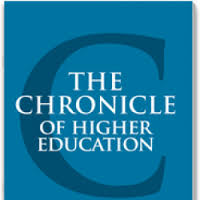Should Learned Societies be in Charge of Peer Review?
 ...How, then, might we rethink academic publishing to increase accessibility while maintaining the benefits of peer review? More important, how might we do this while recognizing the fundamental dual realities that (1) universities are already too stretched to devote significant resources to peer reviewing and (2) publishers are companies whose right to thrive financially should be respected? One solution is to cut the Gordian knot of review and dissemination.
...How, then, might we rethink academic publishing to increase accessibility while maintaining the benefits of peer review? More important, how might we do this while recognizing the fundamental dual realities that (1) universities are already too stretched to devote significant resources to peer reviewing and (2) publishers are companies whose right to thrive financially should be respected? One solution is to cut the Gordian knot of review and dissemination.
I propose that we do this by delegating the responsibilities for peer reviewing to the professional, or "learned," societies. In this model, authors would submit their work to one or more of the professional societies most appropriate for that work. The societies would oversee the peer review and give accepted works an imprimatur. Authors could then shop their works with imprimaturs to different publishers, which would be in the business of dissemination rather than evaluation.
Publishers might then set their own standards for publication (they might, for example, require an imprimatur from a particular society, or from two societies) and edit for style. A publication, though, would be only as good as the content it could attract, and in order to attract good content, publishers would have to offer authors better incentives. Such a system would have many potential benefits. Professional societies are, by their very nature, in a better position to run a peer-review process than are publishers. They have fewer potential conflicts of interest, and they have better command of and access to the experts in the field. Our current system’s review process is often hobbled by a small pool of academics willing to review; many refuse because they believe that the system is exploitative...
- Login to post comments